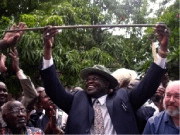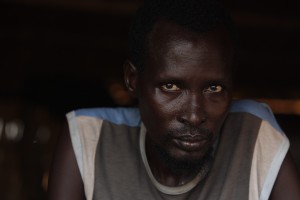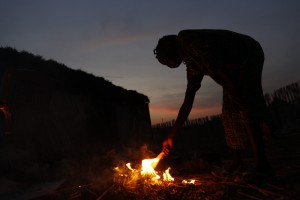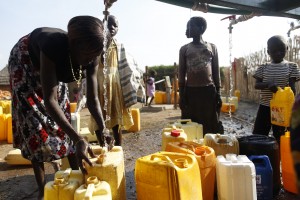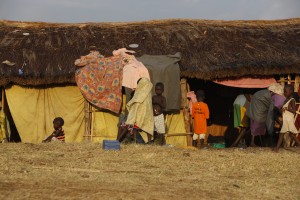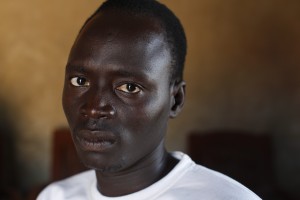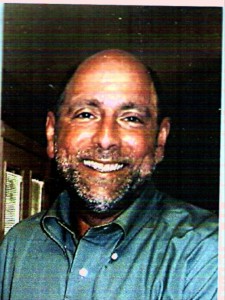It’s Saturday and we’re sharing stories, snapshots, and snippets of the past weeks.
Enjoy!
If you have comments or questions, please use the form at the end of this blog post. We love hearing from our friends.
Where’s the Danged Ol’ Dang?
“When two elephants fight, the grass gets trampled.”
-African Proverb
It’s called “The Dang.”
You’ve probably never heard of it.
I hadn’t either until last July.
It was at a Sudan conference hosted by the Rift Valley Institute, a think tank that specializes in African issues.
I was at a resort in Jinja (Uganda) among diplomats, United Nations workers, and NGOs from various acronyms that always twists my tongue.
The first night of the conference featured a trivia contest. They flashed a photo of a large South Sudanese (i.e. very black) man triumphantly hoisting a stick in the air as others in the photo exulted. The man holding the stick was Riek Machar. I knew it immediately. He has a Leon Spinks-quality gap between his two front teeth.
The trivia question was “What is Dr. Riek Machar holding in his hand and how is it important in South Sudanese Nuer history?’
It was my first introduction to the stick known as “The Dang.”
In the photo of Machar and the Dang, a middle-aged white man stood beside Machar. It was my first time to meet Douglas Johnson.
Dr. Douglas Johnson is probably the most esteemed expert on “The Sudans” as Islamic (Northern) Sudan and South Sudan are known. He was one of the keynote speakers at the conference and I made my way to him at the next break. “Dr. Johnson, I’ve got to know more about The Dang.”
As experts are, he was happy to share information.
He related as to how one of the Nuer prophets of the nineteenth century (Johnson has actually written a book, Nuer Prophets) had used this ceremonial stick (from the root of a tamarind tree and wrapped in copper wire) as a diving rod and symbol of Nuer power. British authorities had eventually beaten down the Nuer and The Dang ended up in the hands of a British Colonial leader.
It made its way back to the UK, collecting dust in the estate of the official.
Douglas Johnson, in that best American quality of dogged pursuit, began hunting for The Dang.
When he tracked it down, it was part of the lot to be auctioned off from the Estate of the deceased official.
He told of hurrying to England and buying The Dang.
The photograph at our Trivia Contest was of Douglas Johnson returning the Dang to its rightful owners, the Nuer people.
However, Johnson wasn’t happy with the next part of the story. “I gave it to the Nuer people. Not to Riek. As far as I know, he still has it at his home. It should be on display in a museum.”
An article from The Sudan Tribune quotes Machar on the Dang’s return in 2009: “Machar said the dang would be taken to Bieh, which is the prophet’s headquarters in a place called Wec Deang in Waat Jonglei state in the near future where a big celebration would be organised.”
Since July, and especially since December I’ve wondered about The Dang. South Sudanese insiders wonder if Machar took it with him when he fled Juba.
Here is one South Sudanese blogger’s take:
When Dr. Riek Machar left Juba as a warrior in mid December 2013, spiritual games began to take center stage, but were only known to some South Sudanese. Riek left Juba with dang in his hand.
Dang was the magical stick once carried and, with disputations, used positively by prophet Ngundeng against the British. It was later taken away by the same British when the prophet’s son commandeered powers after the death of his father. He is said to have displayed uncooperative manners towards the British authorities and had tried to use the dang to defeat them but failed.
They killed him and took the dang away, purposely to stop the craze that people attached to the harmless weapon. One wonders why the British decided to return it to South Sudan in 2010? It arrived back home, nevertheless, and Riek Machar took it into his custody. With dang around, political-spiritual matters reached a crescendo in Juba and elsewhere in the country.
Riek is said to have stuck to ownership of the stick with deep interest of what it might give him.
Read complete article at http://martingarang.blogspot.com/2014/02/my-god-and-my-militant-rights-games.html
Before the “coup/fighting” began, I’d read an editorial about how The Dang might play a part in South Sudan’s 2015 Presidential elections. It was expected that current President Salva Kiir (a Dinka) and Machar (a Nuer) would battle for the SPLM presidential nomination. The idea of Machar using The Dang of a symbol of Nuer unity thrilled as well as scared South Sudanese.
There’s still lots of discussion as to whether the trouble that began in mid-December was an attempted coup led by Riek Machar or simply tribal hostility that broke out among rival elements in the Presidential Guard and spread nationwide.
I’ve been thinking about The Dang as the answer to this question.
If Dr. Machar left it behind, I’d doubt a coup was planned.
If he’s got it in his duffel bag, wherever he may be, I wonder about pre-planning.
People who know him describe Riek Machar as “charismatic” and “ambitious.” Others tag him as untrustworthy due to his partnership with the Islamic north during a civil war that began in 1991. Part of that 1991 rebellion featured Machar’s troops and the infamous “Bor massacre” where several thousand Dinka Bor were killed.
Last week I sat in a receiving camp on the Uganda/South Sudan border. A thin Dinka Bor man scratched in the dirt. “The same one that killed us in 1991 has come to kill us again.”
I knew the answer but still asked. “Who was that?”
“It was Machar. He’s done it again.”
I’m not a politician.
I don’t have all of the facts nor all of the answers.
There are good and bad on each side of what’s going on in South Sudan.
There’s plenty of blame to lay at the feet of the two faces at the top: President Kiir and Dr. Machar.
Most of the good are the innocents, not those in power.
Those in power have shown themselves to be selfish not statesmen.
As the African saying has been used so much recently, “When two elephants fight, the grass gets trampled.”
I’ve been among the broken blades of grass and my heart is broken.
They’re the innocent victims of power plays.
I’m praying for a miracle.
Miracles are not too big for God.
I’m praying that the two elephants, Dr. Machar and President Kiir, could get in the same room and be broken.
Broken for their people.
Broken for their country.
The world’s newest country.
It can happen.
It should happen.
Will you pray that it happens?
To read Douglas Johnson’s account of retrieving the Dang:
http://www.sssuk.org/NgundengsDang/rndi.php
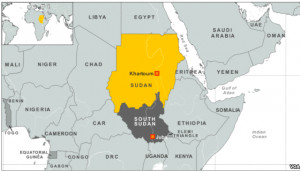
Mary Bol
Her American name is Mary.
Mary Bol.
She speaks English with a New England accent.
That’s pretty impressive in a Dinka Rek.
The Dinka Rek occupy Warrap State in the north central area of South Sudan.
I visit with Mary each time we cross the border at Nimule.
She works with the Immigration Office at the foot of the bridge leaving Uganda.
It’s the bridge where you switch lanes from left to right (or right to left depending on your direction of travel.)
Mary is pretty without being beautiful.
She has an impish smile that always seems ready to break out.
I’ve worried about Mary since South Sudan slipped into anarchy.
No one was safe during this time.
Especially the Dinka and Nuer.
Mary works in Madi country and although the Madi aren’t on either side of this tribal tussle
I was concerned about her safety.
As we had our passports stamped at South Sudan Immigration, I looked around Mary.
I couldn’t find her.
A co-worker assured me of her well-being.
Just as I wrote a note, she walked in.
The same curious smile.
That Emily Dickenson voice that seemed out of place on a Dinka woman.
She’d be in Juba on leave when the fighting started. “I got an uniform, a pistol, and strapped on an AK-47 and got
back to Nimule.
My co-worker Bob said, “You could be a model but I don’t see you carrying an AK-47.”
Mary smiled. “I’m not a model, but I can shoot.” She added. “I do have a cousin* that’s a model in Europe/America.”
I asked about her other (soon to be) famous kin. “How is your nephew* Bol Bol doing?”
“He’s fine. They say he can really play basketball.”
(Bol Bol is a 6′ 5″ seventh grader who “has game.” He’s due to grow more as his father
was 7’7′. You may remember his father, Manute Bol, playing in the NBA. Keep an eye out for that name. Bol Bol.)
* * *
We passed back through Immigration today. Mary Bol was in the back office surrounded by a trio of tall Sudanese travelers. I didn’t distrub her.
It was enough that she is safe, busy, and helping people in and out of her country (and mine) South Sudan.
* A word and disclaimer on African kinship. When Mary Bol states that she has a “cousin” or “nephew” it may or may not mean the same thing as Westerners see it.
In the African world of large families, polygamy, and clans, sub-clans, a brother may not be a brother. Bob Calvert says he asks, “Same mother/Same father?” to ascertain the relationship.
Armstrong
I’ve met lots of Africans with unusual names.
Today I had a barber named Armstrong.
I asked, “How’d you get that name?”
He smiled. “I was born after the Americans landed on the moon. My father thought it was such a great leap forward that he’d name
his son after the first man on the moon.”
Neil A. Armstrong*
My Ugandan barber was named after him.
Neil Armstrong was an unusual hero. An astronaut who shunned the limelight.
Quiet. Often Misunderstood.
He and Charles A. Lindbergh had much in common. The first human to accomplish a hereunto feat who never was comfortable in the notoriety his deed brought him.
Back to Armstrong my barber.
He told of growing up in the west of rural Uganda. His parents had both died of AIDS. “I came to Kampala thirteen years ago for a better life.”
He held the clippers and sighed. “It hasn’t been easy. I’ve had to learn to be strong.”
Strength. That’s a good quality for a man named Armstrong.
*One of my favorite anecdotes involves another Neil Armstrong who served as head coach of the NFL’s Chicago Bears in the circa 1980s.
The Bears were having a difficult season and the always fickle Windy City fans turned on their coach. A bedsheet banner clearly illustrated their frustration:
“They sent the wrong Armstrong to the moon.”
Needless to say, that Neil Armstrong was soon out of a job.
__________
Gimmee Shelter
The old man nodded at the dark clouds beyond the mountains. “The rains are coming.”
We looked at the mass of South Sudanese refugees. Hundreds of women, pots and dishes in hand, standing in line for their daily allotment of cooked food. A long line of yellow jerry cans stretching to faucets attached to a huge container.
The rains are coming.
What will they people do?
They’ve erected shelters with tarps and plastic sheeting emblazoned with UNHCR and USAID. Others have no covering.
What will they do when the rains come?
Equatorial Africa (the Uganda camps are about latitude 4 degrees north) has definite rainy seasons. There are months (March/April) when it rains everyday. There are other times (December and early January) when it never rains. The savannahs become brown and brush fires fill the air with smoke. The coming rains are welcome as they allow planting of crops and better access to water for livestock and humans.
The rains are welcome if you have shelter.
These refugees from South Sudan have little shelter.
Some have none.
What will they do when the rains come?
That night, a heavy rain breaks loose. Bob, being a good Southerner, calls it a “frog choker.’
I’ve always loved rural expressions for rain.
Raining bull heifers and enough hay to feed them.
Log floater.
It rains most of the night.
Laying under our mosquito net at the Sticky Floor hotel, DeDe and I talk about the refugees who are seeking shelter from the same rains pelting our tin roof.
It doesn’t seem as big of a deal that we don’t have hot water, good electricity, or a fan.
We’ve got shelter.
However, thousands near us are laying on the bare ground, trying to stay dry under tattered tarps and stick shelters.
The needs are overwhelming and can easily flood us into paralysis. We can’t meet these massive needs.
Then I think about the ladies at Freedom Baptist Church in Ten Mile, Louisiana. They’re sending over a big duffel of sleeping pads made from Wal Mart bags. We’ll be the middlemen
on blessing one of the smaller camps and getting people off the ground. I’m equally excited about sharing with the refugee women how to make their own mats. Africa is a trashy place and plastic bags contribute to much of that.
Yes, the needs are huge but we can help get a few children off the ground. That will mean better sleep and less colds.
Next, I think about a shelter being built at another location. A Madi tribe Baptist church in Nimule, South Sudan has been hosting a large group of Murle refugees.
Through Baptist Global Resources (BGR) and the generous gift of a Dry Creek family, a brick shelter is being erected to house the refugees. When they eventually return home, the building will become the worship center.
Let me rephrase that, it is already a worship center. As the words of Jesus echo, “I was sick … in prison… hungry and you took me in, I’m reminded that true worship is always shown in caring for others.
I remind you that the rains are coming.
We cannot do everything.
But we can, and must, do something.
Lost Boys Remix
I’m sitting at the Refugee Office for the Ugandan Government. Waiting to see an official who can open the door for continued work in the refugee camps across northern Uganda.
Among the crowd of people sitting there, there are many Somalis. From that crowd I pick out a young man. He’s obviously from my country. He’s South Sudanese. I push my way to sit by him.”
“Where are you from?”
“South Sudan.”
“What part?”
“Bor”
I wonder how many Bor county residents are now in Uganda. I’ve met many in the camps. Some are Dinka. Others are Nuer. All are hurting and homeless.
We don’t get to visit long. His family’s number has been called. I ask where he’s going next.
“I have no idea.”
I look for hope in his eyes. A hope for the future.
A hope for South Sudan.
I see a glimmer.
I wave as he leaves.
Another Lost Boy from the land of divided rivers.
A land the prophet Isaiah called “smooth, dark, tall, and fearsome.”
There are two things reverberating in my mind right now:
1. South Sudanese are resilient. They have been toughened by decades of civil war, oppression from their Arab neighbors to the north, conditions of famine, disease. Young men walked across the country to freedom in the 1990’s. They were called the Lost Boys.
“The Lost Boy” I met today didn’t walk to Kampala. He probably rode a bus or lorry (truck) to here.
I still believe I saw that glint of strength
2. Secondly, the trouble in South Sudan is a spiritual battle. Only last night I read of rebels killing church workers- male and female– during one of the battles in Bor.
There is a battle between evil and good in that country. I do not think it’s overeaching to call the killing, raping, and chaos the work of Satan. Jesus called him “a thief who comes to kill, steal, and destroy.” He’s doing a pretty good job of that presently. Sadly, I’ve followed his footsteps in lots of places in Africa: Rwanda, Congo, Liberia, South Africa, and now South Sudan.
From listening to people who were present, there was plenty of evil on each side of the present conflict.
Additionally, stories abound of Christian kindness shown across tribal lines.
It’s a battle for the soul of a nation.
We’ve even seen it in our South Sudan team. Every difficulty and obstacle possible has been thrown in our paths. We’ve lost valuable team members during these past months. Every step forward is often followed by one or two back.
A reminder that we’re in a spiritual battle. We wrestle not against flesh and blood.
I believe prayer– the prayers of Jesus-followers the world over– can make a difference in this battle.
I have to believe that good– my God– will win and I want to be on His side.
Will you join the battle?
Will you pray?
“Meet the new boss,
Same as the old boss.”
-“Won’t get fooled again”
The Who
He sat on a reed mat on one of the few shady spots in the bare yard.
Up until a month ago it was a school yard. Now it is the first stop in Uganda for hundreds of South Sudanese.
His facial markings identified him as Dinka. I asked where he was from.
“I’m Dinka Bor.”
“How did you get here?”
“When the fighting began in my village, we fled to the Nile and came across on a barge.” He kicked at a dirt clod. “We came down this side of the river and ended up here.”
“Who was doing the fighting?”
“I’m not sure. There were soldiers in uniform and civilians shooting.”
He looked up. “The same one that tried to kill us in ’91 did it again.”
I knew exactly who was talking about. Riek Machar led a Nuer army into Bor in 1991 and killed several thousand Dinka. Machar is the de facto leader of the rebel army that stormed Bor last month.
“Did you flee in 91?”
“No. I’d never left during any of the past trouble. But this time I did. We just wanted to be left alone. My family cuts trees and makes charcoal. We’d take it into Bor to sell.”
He sighed. “We just wanted to be left alone.”
I took his name. I hope to locate him in Rhino Camp where refugees on this side of the Nile are being located.
I wonder if he’ll ever go home again or will he be in exile for the rest of his life.
And he just wanted to be left alone.
On Being a Mediator
I’ve gotten in lots of trouble in my life trying to mend things between folks.
I have a good story about bringing two rural families together at school to end a long-running feud that had started over a deerstand. The children of each family kept fighitng at at school so I decided to bring the parents in and help solve the problem.
The two fathers who were big men , Mule Taylor and James Franklin, hadn’t been in my office for five minutes when they were up in each other’s faces. The women began screaming at each other. It wasn’t my brightest moment as a mediator but the story had a happy ending.
I should’ve learned better.
When I visit Rhino Camp, I’m going to find Simon and Jimmy. The three of us are going to sit down over a pot of African tea and visit.
I met both of them last week at the border. The South Sudan/Ugandan border.
Simon, a Dinka Bor, told me his sad story of leaving the fighting behind to escape. I asked what other tribes were present.
“Mostly we Dinka.” He nodded toward a mango tree. “Those people are Nuer.”
“Are they your enemies?”
Simon looked at me. “I guess not, but they are Nuer.”
Leaving the camp, I went to the tree and introduced myself to a young man with the distinctive forehead scars that identify the Nuer.
His name was Jimmy and his family had fled from Unity State, the source of much of South Sudan’s oil as well as recent violence.
I have his name.
Lord willing, I’ll find both of them. Simon and Jimmy. I’m determined to get them together. Just the three of us. I’ve seen a pot of hot of coffee and buttered biscuits mend a church split. I wonder if sweet African tea and fresh chapatis might do the same.
Stay tuned.
Curt Iles is a Louisiana native who currently writes from Africa.
He and his wife DeDe have three sons and eight grandchildren.
Learn more at http://www.creekbank.net
How else to contact us:
Post: PO Box 332
Dry Creek, LA 70637
 Creekbank Stories Curt Iles, Storyteller
Creekbank Stories Curt Iles, Storyteller
